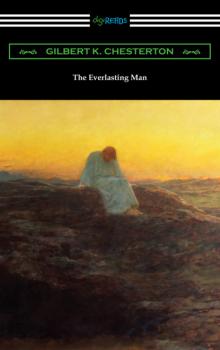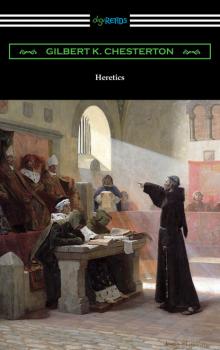Gilbert K. Chesterton
Список книг автора Gilbert K. ChestertonThe Everlasting Man
First published in 1925, “The Everlasting Man” by G. K. Chesterton is a powerful argument against the theories of evolution and comparative religion. Chesterton deeply disagreed with the view of animal and human evolution popularized by “The Outline of History” written by H. G. Wells in 1919. Wells argued that human civilization was nothing more than a logical progression from simple animal life and that Jesus Christ was no more than a charismatic leader. In Wells’ view, the Christian religion was merely one amongst many and nothing more. Armed with persuasive arguments and research, Chesterton sought to prove that man was far more than just a special kind of animal and that Jesus was more than just a charismatic individual. Chesterton argues that humans are quite unlike any other animal on earth and have achieved more and understand more than would be possible without the presence of a divine creator. Christianity provides its believers with a true answer to the chaos and suffering the world experienced before Jesus brought his message to his disciples. “The Everlasting Man” made a lasting impression on such respected authors as C. S. Lewis and continues to inspire the faithful with its compelling defense of Christianity. This edition includes a biographical afterword.
Heretics
“Nothing more strangely indicates an enormous and silent evil of modern society than the extraordinary use which is made nowadays of the word ‘orthodox’. In former days the heretic was proud of not being a heretic. It was the kingdoms of the world and the police and the judges who were heretics. He was orthodox.” So begins “Heretics” by Gilbert K. Chesterton and his examination of the changing meanings of terms such as “orthodox” and “heretic” in the modern age. “Heretics” was originally published in 1905 and is a collection of 20 essays by the English poet, writer, philosopher, journalist, and lay theologian. Chesterton has been called the “prince of paradox” and is well-known for his ability to turn popular sayings and allegories inside out in order to make a point. In “Heretics” he turns his considerable literary skills to a criticism of the rise of ambiguity and vagueness when ideological substance and certainty is superior. He also calls upon popular and public figures to stop being silent and to provide moral and philosophical direction that is so badly needed. “Heretics” is a thoughtful and classic piece of religious exposition. This edition includes a biographical afterword.

